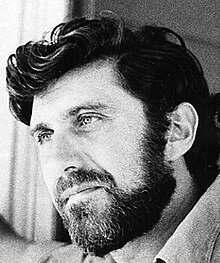Aronson, Elliot

Bio: (1932-) American social psychologist. Elliot Aronson received his doctorate from Stanford University in 1959, where his mentor was Leon Festinger. Aronson has taught at the universities of Harvard, Minnesota, Texas, California at Santa Cruz, and Stanford. Aronson is best known for his work on cognitive dissonance theory (formulated by Leon Festinger in 1957). Aronson modified the theory of cognitive dissonance stating that dissonant cognition has to be self-relevant, and by introducing a “self concept” theory, that states that when an individual possesses inconsistent or conflicting cognition about something he or she sees it as a threat to its self concept. In such a case individual tries to change negative cognition in order to reduce cognitive dissonance. He also experimentally tested the phenomena of effort justification (when people place a higher value on things accomplished after exerting a great effort to attain it) to support the validity of the theory of cognitive dissonance.
Aronson studied interpersonal attraction and formulated the gain-loss hypothesis, which predicts that changes in the level of esteem received from some other person is a more important determinant of attraction than the overall amount of esteem received from that person. He experimentally studied various topics but is famous for his research on the rituals of initiation in closed groups, where he found that an unpleasant initiation leads to a better opinion of the group by the person who has undergone this initiation.
Aronson is also known for his work in schools where he applied the "jigsaw classroom". The concept of the jigsaw classroom was created through experiments in the classroom which showed that when students had to work together on school assignments and be interdependent, it lead to the lowering of prejudices against minorities while enhancing or maintaining individual academic achievement.
Main works
Theories of Cognitive Consistency (1968);
The Handbook of Social Psychology, 2nd. ed. (1968);
The Social Animal (1972);
Research Methods in Social Psychology (1976);
The Jigsaw Classroom (1978);
Burnout: From Tedium to Personal Growth (1981);
Energy Use: The Human Dimension (1984);
Career Burnout (1988);
Age of Propaganda (1993);
Social Psychology: The Most Outstanding Research (1993);
Nobody Left to Hate: Teaching Compassion after Columbine (2000);
Age of Propaganda: The Everyday Use and Abuse of Persuasion (2001);
Cooperation in the Classroom: The Jigsaw Method, 3rd ed. (2011).
Mistakes Were Made (But not by Me): Why We Justify Foolish Beliefs, Bad Decisions, and Hurtful Acts (2015).

